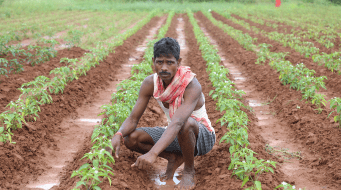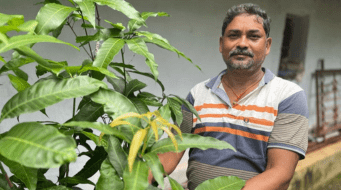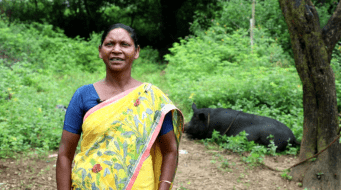In India, climate change is a serious concern for the agriculture sector. Changing weather patterns and extreme weather events, such as droughts and floods, have a direct impact on farmers’ livelihoods. According to a study by National Innovations in Climate Resilient Agriculture (NICRA), rainfed rice yields in India are projected to reduce marginally (<2.5%) in 2050 and 2080 and irrigated rice yields by 7% in 2050 and 10% in 2080 scenarios. Further, wheat yield projected to reduce by 6-25% in 2100 and maize yields by 18-23%.
The impact of climate change on agriculture in India is not just limited to crop yields. Soil degradation, declining groundwater levels, and the spread of pests and diseases are all direct consequences of changing weather patterns. These factors, combined with the overuse of chemical fertilizers and pesticides, have led to a decline in soil health, negatively impacting overall agricultural productivity.
As climate change continues to pose a threat to the agriculture sector, the need to establish and promote climate resilient agriculture practices has become increasingly urgent. Farming has become a high-risk gamble due to low productivity, fluctuating markets, and unpredictable weather events, which directly impacts farmers’ livelihoods.
The ecosystem-based approach to agriculture (EbA) is one of the key strategies for building climate resilient agriculture. By utilising integrated soil and water management, eco-friendly inputs, promoting agro-biodiversity, and implementing multi-layer farming, EbA helps to align farming practices with specific agroecological zones, ultimately increasing yields sustainably, conserving natural resources, and improving overall agricultural productivity. EbA is a key tool for building resilience against climate change by helping farmers adapt to the challenges of shifting weather patterns and increasing temperatures.
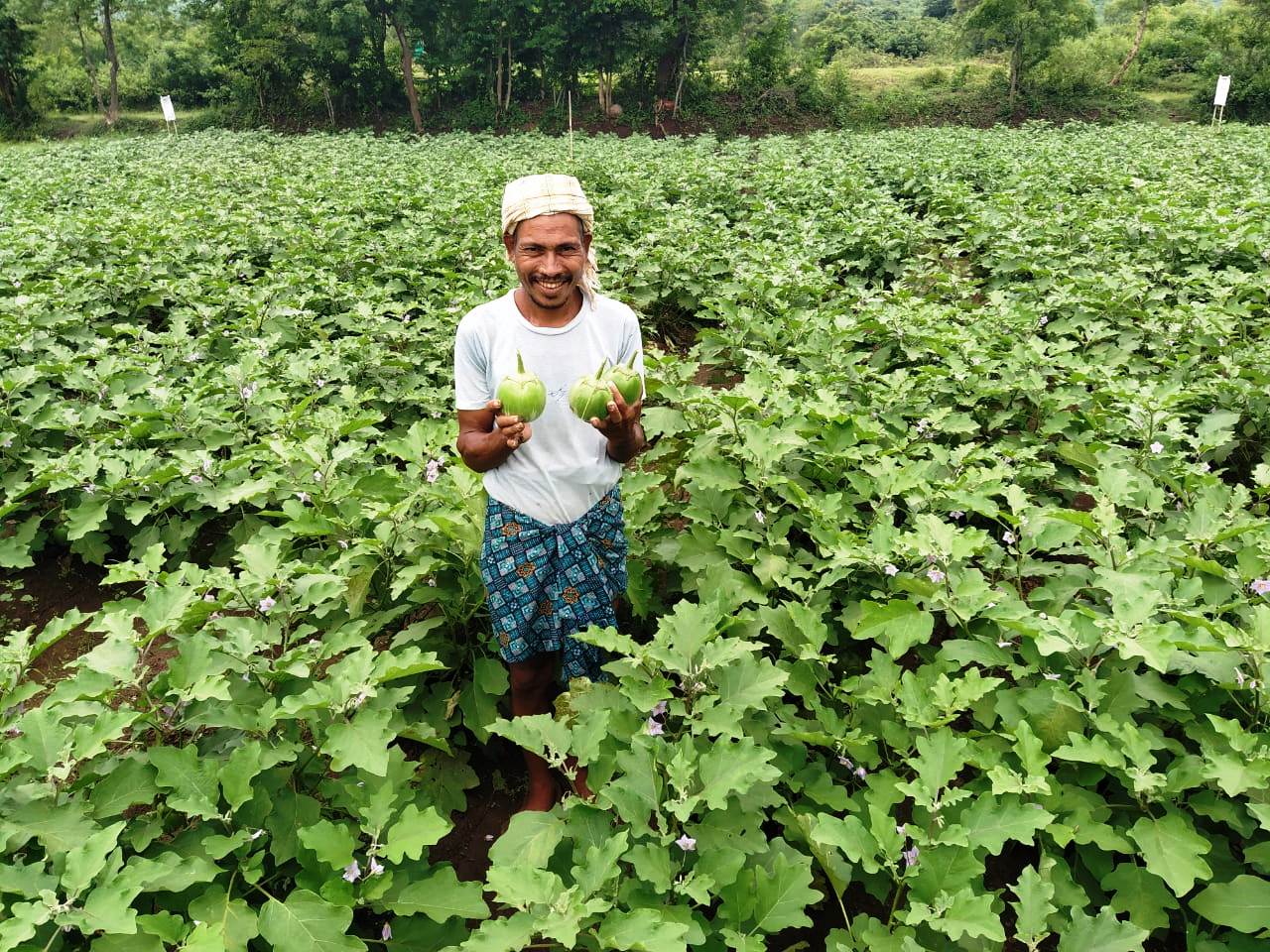
By implementing climate resilient agriculture practices, farmers can reduce their dependence on chemical inputs, improve soil health, enhance water availability and quality, promote biodiversity, and better manage crop pests and diseases. Climate resilient agriculture also improves food security and the overall sustainability of agriculture, providing a more stable source of income for farmers. In short, promoting climate resilient agriculture is not only essential for farmers’ livelihoods and food security, but it is also a crucial step in protecting the environment and creating a sustainable future for generations to come.
Training on Climate Resilient Agriculture (CRA) Practices: For Ecosystem based Adaptation (EbA) in Semi-Arid Regions
To enhance the adoption of Climate Resilient Agriculture, WOTR and W-CReS are organising a training program on Climate Resilient Agriculture (CRA) Practices for Ecosystem-based Adaptation (EbA) in Semi-Arid Regions. The programme is scheduled to take place from the 14th to 17th of March 2023 at the Fr. Hermann Bacher Learning Centre in Darewadi, Ahmednagar, Maharashtra.
The comprehensive 4-day programme will cover the following:
- Introduction to climate change and its impact on agriculture, including greenhouse gas emissions, their causes, impacts, and effects on agricultural production systems
- The need to adopt Climate Resilient Agricultural (CRA) practices and ways to reduce GHG emissions from agriculture.
- An ecosystem-based approach to Climate Resilient Agriculture (EbA) that includes integrated soil and water management, eco-friendly inputs, agro-biodiversity, and multi-layer farming.
- Water budgeting as a tool to ensure optimal, equitable, and efficient use of water in village-level crop planning.
- In-situ soil moisture conservation measures, such as crop residue mulching, broad bed furrow, ridges, and furrows, to better utilize soil moisture and reduce the impact of drought/dry spells.
- Balanced plant nutrient management to enhance soil health and crop productivity and reduce GHG emissions from the soil.
- Integrated pest and disease management through the use of cultural, mechanical, physical, biological, and chemical methods, including bio-pesticides made from locally available plant extracts.
- Integrated farming systems models that improve the socio-economic level of farmers, reduce weather-related risk, and provide sustainable income under changing climatic conditions.
- Agrometeorology and weather forecasting to assist farmers in anticipating and coping with changes in climate.
- Weather-based agro-met advisories to avoid crop losses due to abnormal weather conditions.
- Farmers’ field schools (FFS) as a group-based cyclic learning process that develops farmers’ expertise to make their own crop management decisions and encourages learning from peers, strong communicative skills, and team building.
- Crop contingency planning based on agro-climatic conditions, rainfall patterns, dry spells, soil types, and real-time weather conditions.
- The role of farmer producer organizations (FPO) in facilitating farmers to procure farm inputs at lower cost, share knowledge, and increase negotiating power with traders to get higher returns.
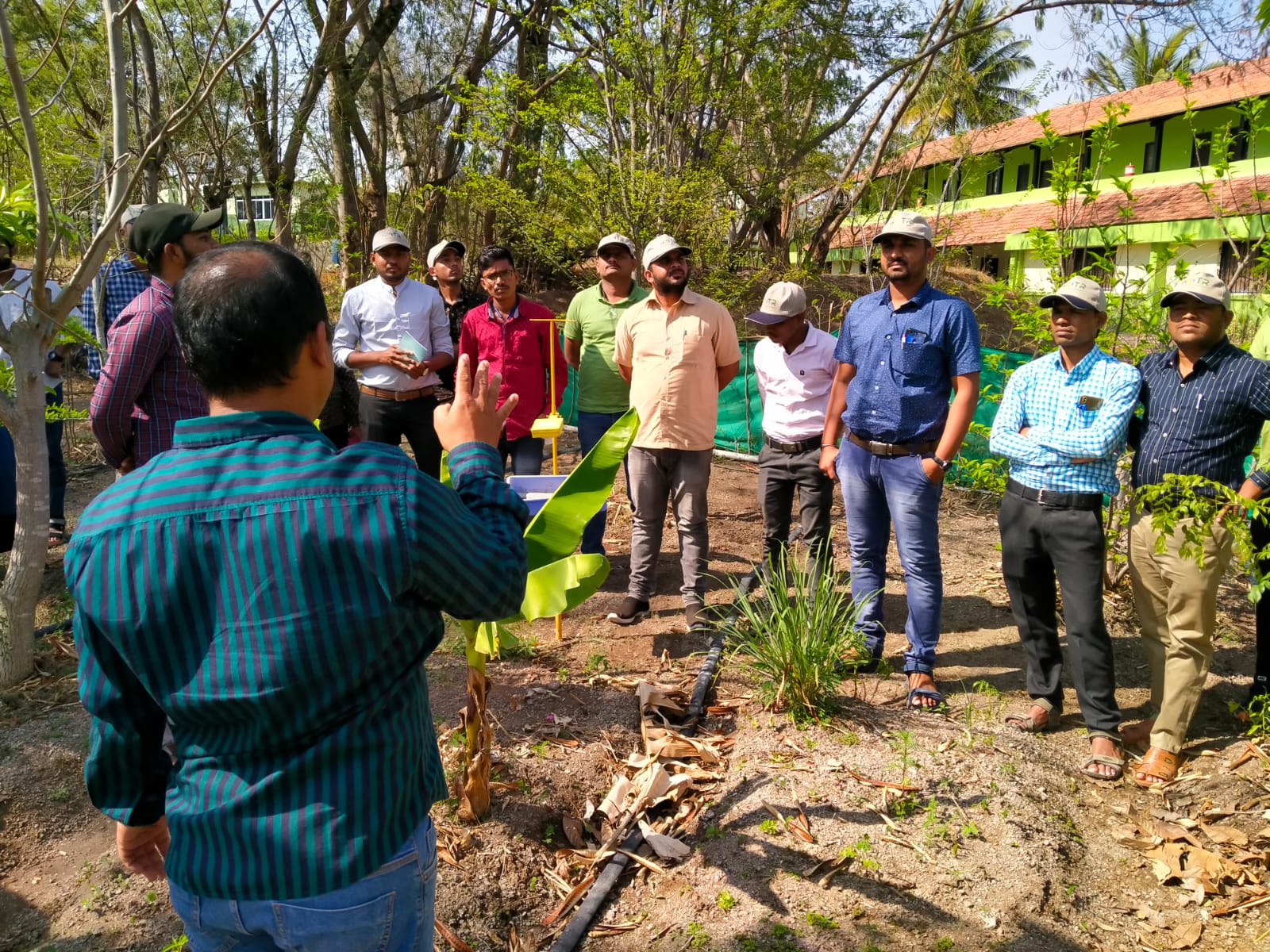
The training program will be a dynamic blend of interactive lectures, practical sessions, and field exercises/exposures to farmers’ plots implementing Climate Resilient agricultural practices. Participants can expect to engage in experience sharing and hands-on learning opportunities. The training will be conducted in English and Hindi (depending on the language preferences of the participants).
Download the detailed Training Brochure
Who Should Attend This Training Programme?
- Team members in NGOs/CBOs/Government programs working directly with communities for the implementation of Climate Resilient Agriculture (CRA) practices and Nature-based Solutions (NBS).
- Young researchers working in NGOs/research organizations on CRA Practices and Nature-based Solutions.
- Progressive farmers interested in learning and practicing climate resilient agricultural methods and Nature-based Solutions.
- Students of Master/UG/Diploma in Agriculture and allied branches.
Participants applying for the training must have completed their full vaccination for COVID-19 (vaccination certificate to be attached when applying for the training).
Download the detailed Training Brochure
How To Apply
Please fill the application form: https://forms.gle/C2xsqGA7bmWkM7uH6
A closed group of 25 candidates will be selected for the training programme. Female applicants are encouraged to apply. To confirm their registration, selected candidates are required to pay a non-refundable fee of Rs. 1,500/-
Please apply through the following google form on or before 25th February 2023. Payment related details will be communicated to shortlisted participants through email. Registrations are only confirmed once the required payment has been received. For additional help or queries, you may contact Mr. Subhash Turkewadkar at subhash.turkewadkar@wotr.org.in; (+91 9604948369) or Mr. Sachin Adhe at sachin.adhe@wotr.org.in; (+91 9011842084)
Also read: Protecting our Agro-ecosystems – the EbA way

